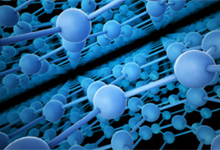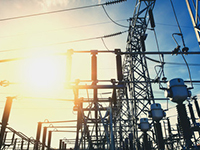Fall 2024 ENE Course Offerings
View all undergraduate ENE courses
View all graduate ENE courses
The Andlinger Center for Energy and the Environment is pleased to announce the following ENE courses for Fall 2024.
 Integrated Assessment Modeling for Climate Policy Making
Integrated Assessment Modeling for Climate Policy Making
Wei Peng
ENE 449/SPI 459
This course discusses the use of Integrated Assessment Models (IAMs) for climate policy and energy research. The course gives an overview of two types of IAMs: detailed process IAMs that evaluate how mitigation options and technology choices influence regional emissions and global climate; and benefit-cost IAMs that estimate the social cost of carbon or the optimal emission trajectory to maximize global welfare. The course then dives into one detailed process IAM, the Global Change Analysis Model, to demonstrate how IAMs have been applied to examine climate policy choice and impacts, air quality and health co-benefits, etc.
 Integrated Assessment Modeling for Climate Policy Making
Integrated Assessment Modeling for Climate Policy Making
Wei Peng
ENE 549/SPI 583
This course discusses the use of Integrated Assessment Models (IAMs) for climate policy and energy research. The course gives an overview of two types of IAMs: detailed process IAMs that evaluate how mitigation options and technology choices influence regional emissions and global climate; and benefit-cost IAMs that estimate the social cost of carbon or the optimal emission trajectory to maximize global welfare. The course then dives into one detailed process IAM, the Global Change Analysis Model, to demonstrate how IAMs have been applied to examine climate policy choice and impacts, air quality and health co-benefits, etc.
ENE Cross-Listed courses:
 Green and Catalytic Chemistry
Green and Catalytic Chemistry
Michele Sarazen
CBE 421/CHM 421/ENE 421
This course will use green chemistry and engineering principles to assess the catalytic production of fuels and chemicals. Historical context for current processes will be given to contrast available routes for conversions using alternative, more sustainable feedstocks, and processes. These case studies will also serve as platforms for the fundamentals of heterogeneous acid and metal catalysis, including techniques of catalyst synthesis and characterization, as well as an understanding of how reactions occur on surfaces.
 Solid-State Physics I
Solid-State Physics I
Mansour Shayegan
ECE 441/ENE 441
An introduction to the properties of solids. Theory of free electrons–classical and quantum. Crystal structure and methods of determination. Electron energy levels in a crystal: weak potential and tight-binding limits. Classification of solids–metals, semiconductors and insulators. Types of bonding and cohesion in crystals. Lattice dynamics, phonon spectra and thermal properties of harmonic crystals.
 Advanced Power Electronics
Advanced Power Electronics
Minjie Chen
ECE 581/ENE 581
This course presents advanced topics of power electronics covering advanced design techniques, advanced models, and the interdisciplinary areas of power electronics covering devices, packaging, control, thermal, and magnetics. Example topics include: (1) switched-capacitor circuits; (2) advanced power magnetics design; (3) advanced control methods; (4) very high frequency power electronics; (5) principles of wide bandgap semiconductor devices. In the final project, students perform thorough literature review on recent research frontiers and give a final presentation.
 The Habitable Planet
The Habitable Planet
Elizabeth Niespolo
GEO 203/ENE 203
This course introduces solid Earth system science, quantifying the underlying physical and chemical processes to study the formation and evolution of Earth through time. We discuss how these processes create and sustain habitable conditions on Earth’s surface, including feedbacks and tipping points as recorded in the geologic record. Topics include: stellar and planetary formation, plate tectonics, the geologic record, natural resources, the hydrologic cycle and sedimentation, paleoclimatology, and the “Anthropocene”. Students will apply these topics to the recent geologic past to assess the impact of humans on their environments.
 Thermodynamics
Thermodynamics
Kelsey Hatzell
MAE 221/ENE 221
Heat and work in physical systems. Concepts of energy conversion and entropy, primarily from a macroscopic viewpoint. Efficiency of different thermodynamic cycles, with applications to everyday life including both renewable and classical energy sources. In the laboratory, students will carry out experiments in the fields of analog electronics and thermodynamics.
 Applied Optimization for Energy Systems Engineering
Applied Optimization for Energy Systems Engineering
Jesse Jenkins
MAE 573/ENE 539
In this course students learn practical applications of optimization methods in energy systems engineering. Students also gain familiarity with techniques via survey of canonical problems in power systems operations and planning. The course teaches practical model development, including formulation and implementation of linear and mixed integer programs in an algebraic programming language. The second half surveys advanced topics, including: managing dimensionality in large-scale problems, technology evaluation, policy evaluation, decision making under uncertainty, and multi-objective optimization.
 Energy and Commodities Markets
Energy and Commodities Markets
Ronnie Sircar
ORF 455/ENE 455
This course is an introduction to commodities markets (oil, gas, metals, electricity, etc.), and quantitative approaches to capturing uncertainties in their demand and supply. We start from a financial perspective, and traditional models of commodity spot prices and forward curves. Then we cover modern topics: game theoretic models of energy production (OPEC vs. fracking vs. renewables); quantifying the risk of intermittency of solar and wind output on the reliability of the electric grid (mitigating the duck curve); financialization of commodity markets; carbon emissions markets. We also discuss economic and policy implications.
 Optics and Lasers: Building and Understanding Optical Systems
Optics and Lasers: Building and Understanding Optical Systems
Julia Mikhailova
MAE 421/ENV 421/ENE 411
The course introduces fundamentals of optics, lasers, and Fourier transforms through lectures and hands-on activities. The topics include ray and wave optics, imaging, and image processing, optical Fourier transforms, principles of lasers, and applications in nuclear fusion for renewable energy, environmental sensing, space exploration, ultrafast metrology, chemistry, and physics.